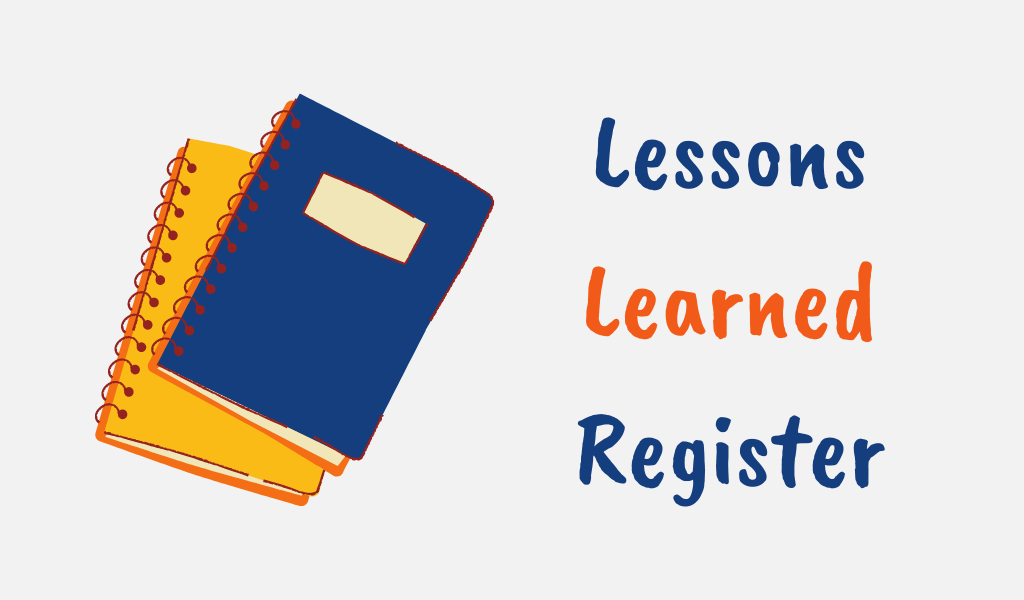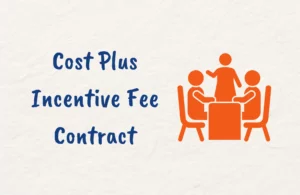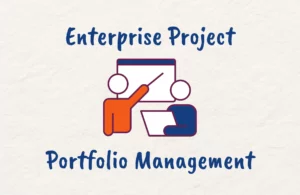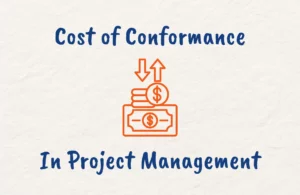The project management lifecycle is fraught with mistakes, lessons, and new knowledge, which when used in the right way happen to be key assets and organizational knowledge for future projects.
A Lessons Learned Register is a powerful knowledge management tool that enables organizations to capture insights and best practices from across projects and teams.
This comprehensive guide examines how to build an effective lessons learned process, key features of lessons learned systems, strategies for encouraging knowledge sharing, and measuring the business value of retaining organizational knowledge.
Learn how lessons learned registries can transform project debriefs into an actionable asset for driving change, preventing repeat mistakes, and building project memory.
What are Lessons Learned in Project Management?
In Project Management, lessons learned are insights and knowledge derived from project experiences, both positive and negative.
They form an integral part of the Project Knowledge Management process encompassing tacit and explicit knowledge and can range from project successes to failures, innovative approaches to challenges faced, and adjustments made.
The objective is to apply these lessons to future projects or the next project phases to avoid repeating past mistakes and to replicate successful strategies, thus enhancing project outcomes.
Project Lessons Learned Examples
There are lots of lessons you can learn throughout the lifecycle of a project. They could include instances like a successful risk mitigation strategy, a failed communication approach, or an effective resource allocation method.
The lessons learned cut across various factors like the project scope, schedule, budget, stakeholders, assumptions, resources, and risks. Some examples include:
- Effective Risk Management: Successful implementation of a risk mitigation strategy led to the early identification and resolution of potential issues, resulting in the project being completed on schedule.
- Communication Breakdown: Communication gaps led to misunderstandings, resulting in project delays. This highlighted the need for a more robust communication plan.
- Resource Allocation: A unique method of resource allocation led to more efficient use of resources and cost savings. This could be an effective strategy for future projects.
- Regular Project Meetings: Holding regular project status meetings improved team communication and coordination, leading to better project execution.
- Underestimation of Resources: Underestimating necessary resources resulted in project delays and budget overruns, emphasizing the need for more accurate resource estimation in future projects.
Lessons Learned Register Definition
The Lessons Learned Register is a project document used to systematically collect and organize experiences, insights, and learnings derived from various stages of a project.
These can encompass both the successes and failures encountered, providing a balanced perspective on project execution.
It’s a comprehensive platform that records and stores key insights gained throughout the lifecycle of a project, serving as an invaluable resource for future planning and strategy development.
The purpose of such a register is to capture these lessons in a structured way, offering a reference point for future projects.

What are the Forms of Knowledge?
Key to understanding the Lessons Learned Register is recognizing the two forms of knowledge it encapsulates which are Tacit and Explicit Knowledge.
Tacit Knowledge refers to the personal and often difficult-to-articulate knowledge that individuals accumulate through their experiences.
It’s the type of knowledge that’s deeply embedded in an individual’s consciousness and is usually shared through personal interactions or social settings.
On the other hand, Explicit Knowledge is formal, codified, and can be easily shared through documented information.
It can be expressed in words or pictures and can be efficiently transferred from one individual to another, making it a vital component of the Lessons Learned Register.
Benefits of Lessons Learned Register
Lessons Learned Registers provide invaluable organizational knowledge management and enable a variety of benefits:
1. Facilitating Knowledge Sharing Across Teams and Projects
A centralized lessons repository allows insights to be easily searched and shared across the organization.
Teams can learn from other groups’ failures and successes instead of only relying on their own experiences mitigating siloed thinking and reinforcing enterprise-wide collaboration.
2. Enabling Data-Driven Decision Making
Over time, the repository becomes a rich knowledge bank that can reveal trends and patterns.
Management can perform analysis to guide strategic planning using data-driven insights from past projects.
3. Promoting Process Improvements Over Time
By studying lessons around what worked well versus poorly in terms of tools, processes, or team dynamics, organizations can pinpoint areas for improvement enabling continuous optimization of processes.
4. Preventing Repeat Mistakes and Reinventing the Wheel
Reference the register to uncover past challenges and recommendations before embarking on new projects which minimizes making the same errors repeatedly. Institutional memory also reduces redundant work.
5. Building Institutional Memory and Expertise
As veteran employees leave, their experiences remain in the lessons learned system. This mitigates knowledge loss and preserves organizational knowledge. It also helps surface who in the organization is skilled in certain areas.
Creating an Effective Lessons Learned Process
A systematic process is key to ensuring quality lessons learned are captured and create value.
Here are some best practices to consider:
1. When Should Lessons Be Captured?
- At project close-out while experiences are fresh
- After major milestones or phase gates
- When a team completes a complex deliverable
Documenting lessons at project close leaves room to apply improvements to future work. Capturing during milestones provides more real-time feedback.
2. What Should Be Included?
- Context on objectives, scope, team composition
- Narrative of what transpired during execution
- Assessment of what went well or poorly
- Recommendations and action items
- Supporting data, links, attachments
Providing context helps teams learn how to adjust lessons to their situation. Action items enable follow-through.
3. Who Should Be Involved?
- Project team members should lead the documentation
- Subject matter experts lent for brief periods
- Leadership weighing in on strategic decisions
Perspectives from both the core team and peripheral members provide a 360-degree view. Leadership input brings visibility into high-level issues.
4. Secure Storage and Easy Retrieval
- Centralized accessibility via repository software
- Searchable using keywords, tags, categories
- Permissions to control access as needed
- Dashboards to surface popular and recent lessons
Smart storage and taxonomy make it simple to find and retrieve the perfect lesson at the point of need.
5. Objective, Blameless Lessons
- Focus on facts, not judgments
- Non-punitive culture for sharing failures
- Emphasize learning, not finger-pointing
Avoid making contributors defensive by capturing lessons constructively. Extract value from errors without culpability.

5 Steps to Conducting a Lessons Learned Workshop
Conducting a Lessons Learned Workshop is an important part of project management.
The goal of a Lessons Learned Workshop is not just to identify and document lessons, but to actually incorporate them into future projects.
Here’s a step-by-step guide on how to conduct one:
1. Planning the Workshop
- Schedule the Workshop: Plan the workshop for a suitable time, preferably close to the project’s completion. All key stakeholders, including project team members, project managers, and relevant department heads, should be invited.
- Prepare an Agenda: Clearly outline what will be discussed in the workshop. This could include a review of the project, identification of successes and failures, and discussions on ways to improve future projects.
2. Conducting the Workshop
- Introduce the Purpose: Start the workshop by explaining its purpose. Reinforce that it’s a safe space for open communication, and the goal is to learn and improve, not to blame.
- Review the Project: Briefly review the project and its objectives. Discuss what the project was supposed to achieve and what actually happened.
- Discuss Successes: Encourage team members to share their successes and what went well in the project. It’s important to acknowledge and celebrate these successes.
- Discuss Failures and Challenges: Next, discuss what didn’t go well. Encourage open and honest communication about failures and challenges. The goal is to identify these issues to avoid them in the future.
3. Identifying Lessons Learned
- Brainstorm Lessons: Use the successes and failures identified to brainstorm lessons learned. What can the team do differently in the future to replicate successes and avoid failures?
- Prioritize Lessons: Not all lessons carry the same weight. Prioritize them based on their impact on the project and their relevance to future projects.
4. Documenting Lessons Learned
- Document the Lessons: Use a Lessons Learned Register to document the lessons identified. Include the nature of the lesson, its impact, and recommended actions for future projects.
- Assign Responsibility: For each lesson learned, assign a person or team the responsibility of incorporating that lesson into future projects.
5. Review and Follow-Up
- Review the Lessons Learned: Periodically review the Lessons Learned Register and track the implementation of the lessons.
- Follow-Up: After the workshop, send out a summary of the lessons learned and the next steps. It’s important to keep everyone informed and involved in the process.
Lessons Learned Register Template Excel
To have a better understanding of how a Lessons Learned Register is, find below a free downloadable and customizable Microsoft Excel template.
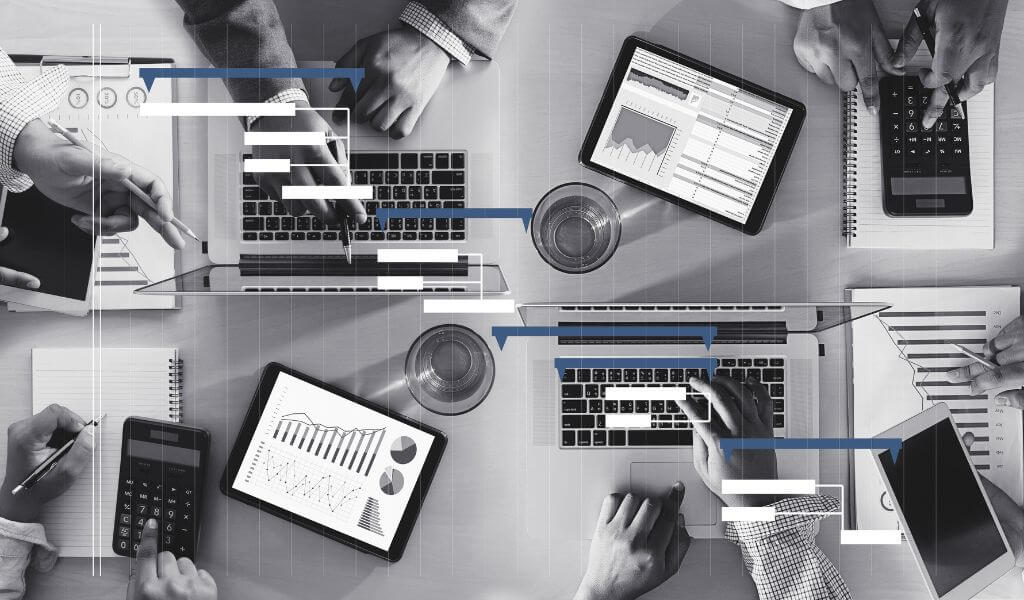
Lessons Learned Repository
A Lessons Learned Repository is a centralized database or collection used in project management, which stores, organizes, and manages the insights, knowledge, and experiences gained from previous projects.
It’s a key tool for knowledge management and a mechanism for promoting continuous improvement within an organization.
Key features and functions of a Lessons Learned Repository include:
- Documenting Lessons: The repository should provide a structured way to document lessons learned, including details about the project, the nature of the lesson, its impact, and any recommended actions for future projects.
- Organizing Lessons: Lessons should be categorized and tagged in a way that makes them easy to find and reference. This could be by project, by department, by type of lesson (e.g., schedule, cost, quality), or other relevant categories.
- Searching Lessons: The repository should include a search function to make it easy for team members to find relevant lessons when planning and executing new projects.
- Access Control: Not all lessons may be relevant to all team members. The repository should allow for access control and permissions to ensure the right people have access to the right lessons.
- Reviewing and Updating Lessons: Lessons should be periodically reviewed and updated, and the repository should provide a way to track these changes.
Lessons Learned Register vs Lessons Learned Repository
The Lessons Learned Register is a project document used to record knowledge gained during a project which can be usefully applied to other projects.
The register is typically created and managed by the project team and is often a living document updated throughout the project lifecycle.
The Lessons Learned Repository is a centralized database or collection where the lessons learned from all of an organization’s projects are stored and organized.
Unlike a register, which is project-specific, the repository spans across multiple projects and even across the entire organization.

Lessons Learned Register PMP Exam Tips
The Lessons Learned Register is a key tool in project management and is referenced multiple times throughout the PMBOK (Project Management Body of Knowledge).
If you are preparing for the Project Management Professional (PMP) exam, understanding lessons learned is key.
Here are some tips to help you understand and utilize the Lessons Learned Register effectively for the PMP exam:
1. Understand the Purpose
The Lessons Learned Register records the knowledge gained during a project which can be useful to future projects. This includes both successes and failures.
The goal is to encourage the repeat of positive actions and avoid the recurrence of negative ones.
2. Know Where it is Created
The Lessons Learned Register is an output of the Manage Project Knowledge process, which falls under the Integration Management knowledge area.
This process aims to use existing knowledge and create new knowledge to achieve the project’s objectives and contribute to organizational learning.
3. Understand Where it Acts as Input
The Lessons Learned Register is used as an input in many processes across all the knowledge areas. Some key processes include:
- Plan Resource Management: Lessons learned from past projects can influence how resources are planned for future projects.
- Plan Quality Management: The register can provide insights into quality issues from previous projects, helping to improve quality planning.
- Plan Risk Management: Past lessons can provide valuable insights into potential risks and their mitigation strategies.
- All Plan Processes: In general, all planning processes could use lessons learned to improve planning accuracy and efficiency.
4. Be Aware of its Contents
The Lessons Learned Register may include details about:
- Project challenges and how they were addressed
- Successful strategies and actions
- Failed strategies and actions
- Unforeseen events or circumstances
- Innovative approaches
- Stakeholder management techniques
5. Know the Usage in Closing Phase
In the close project process or phase, the final version of the Lessons Learned Register is reviewed to ensure that all key learning has been documented.
The completed Lessons Learned Register is then transferred to the organization’s knowledge repository for use in future projects.
Understanding the Lessons Learned Register, its creation, and its application as an input in various processes is vital for the PMP exam.
Always remember, it’s not just about memorizing terms but understanding the logic and reasoning behind them.
Conclusion
Every project, regardless of its nature or scope, offers a wealth of learning opportunities.
These learnings, when captured effectively in a Lessons Learned Register, can provide valuable insights to avoid repeating past mistakes and replicate successful strategies.
The Lessons Learned Register serves as an essential tool in capturing and documenting both tacit and explicit knowledge.
By harnessing the power of a Lessons Learned Register, project managers and teams can transform their approach to project management, making it more reflective, strategic, and ultimately, more successful.
FAQs
When is the Lessons Learned Register Created?
The Lessons Learned Register is typically created during the initiating and planning phases of a project. It’s continuously updated throughout the project life cycle to record insights and experiences for future reference.
Who Creates a Lessons Learned Register?
The project manager, with contributions from the project team, creates a Lessons Learned Register.
Stakeholders may also provide input. It’s a collaborative document that captures project experiences, insights, and knowledge gained for future utilization.
Which Process has the Lessons Learned Register as an Output?
The Manage Project Knowledge process in the PMBOK Guide’s Executing Process Group outputs the Lessons Learned Register.
This process involves using knowledge management techniques to produce and update the register throughout the project life cycle.
When Should Lessons Learned be Recorded?
Lessons should be recorded throughout the entire project lifecycle. While they’re often documented during project review meetings or at the end of project phases,
It’s best practice to capture lessons as soon as they occur to ensure accuracy and completeness.
What Should be Included in a Lesson Learned Log?
A Lesson Learned Log should include the date, description of the situation, impact, recommendation or action taken, the outcome, and the person responsible.
It should also categorize the lesson into relevant areas like project management, technical, process, or other relevant categories.
How Do You Track Lessons Learned?
Lessons learned are tracked using a Lessons Learned Register, which is a document that records project experiences, insights, and knowledge.
The register is updated continuously throughout the project lifecycle, capturing key information such as the description, impact, and proposed actions for each lesson.

